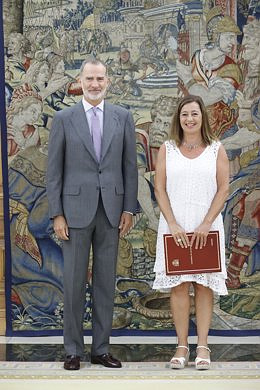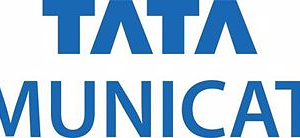The Constitution does not determine who should be nominated, but leaves the decision to the Head of State after listening to the parties
MADRID, 20 Ago. (EUROPA PRESS) -
The King will begin this Monday, August 21, at the Palacio de la Zarzuela, his round of consultations to designate a candidate for the investiture, and for the first time he will have to choose between two candidates who are running to assume the position: Alberto Núñez Feijóo, from the PP, who claims to be the winner of the July 23 elections, and the socialist Pedro Sánchez, who considers himself the only one capable of gaining support to overcome the vote in Congress.
After the constitution of the Cortes, the president of Congress, Francina Armengol, went to Zarzuela on Friday to inform the Head of State of the constitutive session and to provide him with the list of parties that had shown their willingness to participate in the round of consultations.
A few hours later, the Casa del Rey announced the program for this round of consultations, the ninth of this type that Felipe VI has carried out since his proclamation. It will be a series of hearings of only two days, since only seven formations will participate, since another four have declined to attend (ERC, Bildu, Junts and BNG) and also Yolanda Díaz will represent the eight parties of Sumar.
As usual, the party list has been ordered from lowest to highest support obtained in the general elections. Thus, the round will open at 10:30 a.m. on Monday with the president of the Unión del Pueblo Navarro (UPN), Javier Esparza, the foral formation that won a seat in Congress and has committed its support to the candidacy of Alberto Núñez Feijóo .
An hour and a half later, the deputy of the Canary Islands Coalition (CC), Cristina Valido, who is open to negotiating with either of the two candidates, is summoned, and at 4:00 p.m. it will be the turn of the PNV spokesman, Aitor Esteban, who represents five deputies and that he only contemplates speaking with the PSOE.
The first day of consultations will be closed by the leader of Sumar, Vice President Yolanda Díaz, who will go to Zarzuela at 5:30 p.m. on Monday representing the 31 deputies achieved on 23J.
Sumar is a coalition that has deputies from eight different parties (Sumar, Podemos, En Comú, IU, Compromís, Más Madrid, Més per Mallorca and Chunta Aragonesista), but on this occasion they will only have one voice before the Head of State, that of Their leader.
On previous occasions, when they presented themselves as Unidas Podemos, the different members of the coalition had their place in the consultation round of Zarzuela and there paraded Podemos, En Comú-Podem, Izquierda Unida and even Galicia En Común (represented by the very Yolanda Díaz), as well as other formations such as Más País and Compromís.
The King will resume at 10:30 a.m. on Tuesday the round of consultations with the president of Vox, Santiago Abascal, representing the 33 deputies of the formation. At the beginning of the month, he offered his free support to Alberto Núñez Feijóo, but the PP's decision not to give them votes to enter the Congress Table this week has cooled relations between the two and now Vox must clarify to the King if he maintains his support.
At 12 noon it will be the turn of the President of the Government and Secretary General of the PSOE, Pedro Sánchez, and in the afternoon, at 4:00 p.m., the leader of the PP, Alberto Núñez Feijóo, will attend as the candidate with the most votes and with the most seats.
They are the two applicants who are willing to pick up the commission for the investiture debate. Alberto Núñez Feijóo, as the winner of the July 23 elections and with 171 tied votes (PP, Vox and UPN), and Pedro Sánchez, who sees himself capable of weaving alliances to overcome the vote, as he already achieved on Thursday to win the majority in the Table of Congress.
Article 99 of the Constitution establishes that, "after each renewal of the Congress of Deputies, the King, after consultation with the representatives designated by the political groups with parliamentary representation, and through the president of the Congress, will propose a candidate for the Presidency of the government".
Therefore, the Magna Carta does not determine that the winner of the elections should be a candidate, it simply states that whoever achieves the confidence of Congress will be sworn in as president, either in a first vote with an absolute majority or in a second with more votes in favor than in the first vote. against.
Therefore, it is Congress who chooses the new Prime Minister, but it is the King who decides who will submit to the investiture debate. Until now, the decision was simple and there was only one candidate on the table, the one with the most votes in the elections, and another thing is that later his candidacy prospered or not in the vote in Congress.
Only once, in January 2016, did the winner of the elections inform the king that he was resigning as a candidate considering that he did not have enough votes: Mariano Rajoy. This forced the head of state to organize a second round of consultations and end up giving the opportunity to whoever came second, Pedro Sánchez, who failed to be sworn in.
Given the indeterminacy, this round of consultations is especially relevant, but four of the parties that Pedro Sánchez has have been deleted from the list and they do not plan to go to Zarzuela to report their plans.
These are the independentistas of Esquerra Republica (ERC), Bildu and Junts, as well as the nationalists of the BNG, parties that do not recognize the political authority of the Head of State and that, in the case of the Catalan formations, maintain a boycott of Felipe VI since his speech after the illegal referendum on October 1, 2017.
With the information that the political representatives have transmitted to him in the round of consultations, the King will again call the president of the Congress, Francina Armengol, to Zarzuela to communicate his decision, the name of the candidate he proposes to submit to the investiture debate.
From there, the countdown will begin to organize the investiture debate, although it cannot be before August 28, which is when the Congress Table will certify the list of parliamentary groups of the XV Legislature, a process on which ERC and Junts, which do not meet the requirements established by the Regulation for its formalization.
In the event of a political deadlock, the date of the first vote of the investiture debate is key, since it will determine the day that a new general election will be held. Specifically, if the first failed inauguration is voted on August 30, an eventual repetition of the elections would take place on December 17, but if it is delayed, it would be time to vote at Christmas if in the end two months go by without anyone being elected president.

 Exploring Cardano: Inner Workings and Advantages of this Cryptocurrency
Exploring Cardano: Inner Workings and Advantages of this Cryptocurrency Seville.- Economy.- Innova.- STSA inaugurates its new painting and sealing hangar in San Pablo, for 18 million
Seville.- Economy.- Innova.- STSA inaugurates its new painting and sealing hangar in San Pablo, for 18 million Innova.- More than 300 volunteers join the Andalucía Compromiso Digital network in one month to facilitate access to ICT
Innova.- More than 300 volunteers join the Andalucía Compromiso Digital network in one month to facilitate access to ICT Innova.-AMP.- Ayesa acquires 51% of Sadiel, which will create new technological engineering products and expand markets
Innova.-AMP.- Ayesa acquires 51% of Sadiel, which will create new technological engineering products and expand markets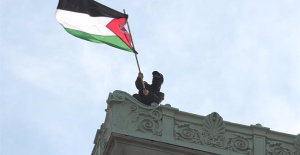 US Police storm Columbia University and arrest more than a hundred pro-Palestinian protesters
US Police storm Columbia University and arrest more than a hundred pro-Palestinian protesters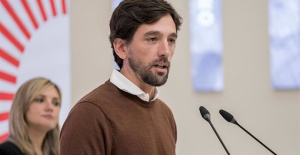 The PP incorporates the former general secretary of Ciudadanos Adrián Vázquez in its list for the European elections
The PP incorporates the former general secretary of Ciudadanos Adrián Vázquez in its list for the European elections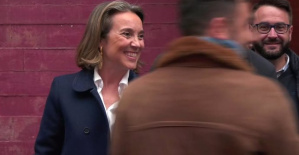 Gamarra (PP) accuses Sánchez of "an exercise in democratic degeneration" to "avoid being controlled by counterpowers"
Gamarra (PP) accuses Sánchez of "an exercise in democratic degeneration" to "avoid being controlled by counterpowers" The May 1 demonstration for full employment begins in Madrid
The May 1 demonstration for full employment begins in Madrid How Blockchain in being used to shape the future
How Blockchain in being used to shape the future Not just BTC and ETH: Here Are Some More Interesting Coins Worth Focusing on
Not just BTC and ETH: Here Are Some More Interesting Coins Worth Focusing on Ivace and promotes a less invasive device for the early detection of prostate cancer
Ivace and promotes a less invasive device for the early detection of prostate cancer Valencia unanimously approves the ordinance to allocate spaces to test innovative initiatives
Valencia unanimously approves the ordinance to allocate spaces to test innovative initiatives UPV researchers promote a paid master's degree as a "talent factory" in integrated photonics
UPV researchers promote a paid master's degree as a "talent factory" in integrated photonics A spin-off of the UV works on obtaining high-resolution 3D biomedical images in real time
A spin-off of the UV works on obtaining high-resolution 3D biomedical images in real time A million people demonstrate in France against Macron's pension reform
A million people demonstrate in France against Macron's pension reform Russia launches several missiles against "critical infrastructure" in the city of Zaporizhia
Russia launches several missiles against "critical infrastructure" in the city of Zaporizhia A "procession" remembers the dead of the Calabria shipwreck as bodies continue to wash up on the shore
A "procession" remembers the dead of the Calabria shipwreck as bodies continue to wash up on the shore Prison sentences handed down for three prominent Hong Kong pro-democracy activists
Prison sentences handed down for three prominent Hong Kong pro-democracy activists ETH continues to leave trading platforms, Ethereum balance on exchanges lowest in 3 years
ETH continues to leave trading platforms, Ethereum balance on exchanges lowest in 3 years Investors invest $450 million in Consensys, Ethereum incubator now valued at $7 billion
Investors invest $450 million in Consensys, Ethereum incubator now valued at $7 billion Alchemy Integrates Ethereum L2 Product Starknet to Enhance Web3 Scalability at a Price 100x Lower Than L1 Fees
Alchemy Integrates Ethereum L2 Product Starknet to Enhance Web3 Scalability at a Price 100x Lower Than L1 Fees Mining Report: Bitcoin's Electricity Consumption Declines by 25% in Q1 2022
Mining Report: Bitcoin's Electricity Consumption Declines by 25% in Q1 2022 Oil-to-Bitcoin Mining Firm Crusoe Energy Systems Raised $505 Million
Oil-to-Bitcoin Mining Firm Crusoe Energy Systems Raised $505 Million Microbt reveals the latest Bitcoin mining rigs -- Machines produce up to 126 TH/s with custom 5nm chip design
Microbt reveals the latest Bitcoin mining rigs -- Machines produce up to 126 TH/s with custom 5nm chip design Bitcoin's Mining Difficulty Hits a Lifetime High, With More Than 90% of BTC Supply Issued
Bitcoin's Mining Difficulty Hits a Lifetime High, With More Than 90% of BTC Supply Issued The Biggest Movers are Near, EOS, and RUNE during Friday's Selloff
The Biggest Movers are Near, EOS, and RUNE during Friday's Selloff Global Markets Spooked by a Hawkish Fed and Covid, Stocks and Crypto Gain After Musk Buys Twitter
Global Markets Spooked by a Hawkish Fed and Covid, Stocks and Crypto Gain After Musk Buys Twitter Bitso to offset carbon emissions from the Trading Platform's ERC20, ETH, and BTC Transactions
Bitso to offset carbon emissions from the Trading Platform's ERC20, ETH, and BTC Transactions Draftkings Announces 2022 College Hoops NFT Selection for March Madness
Draftkings Announces 2022 College Hoops NFT Selection for March Madness